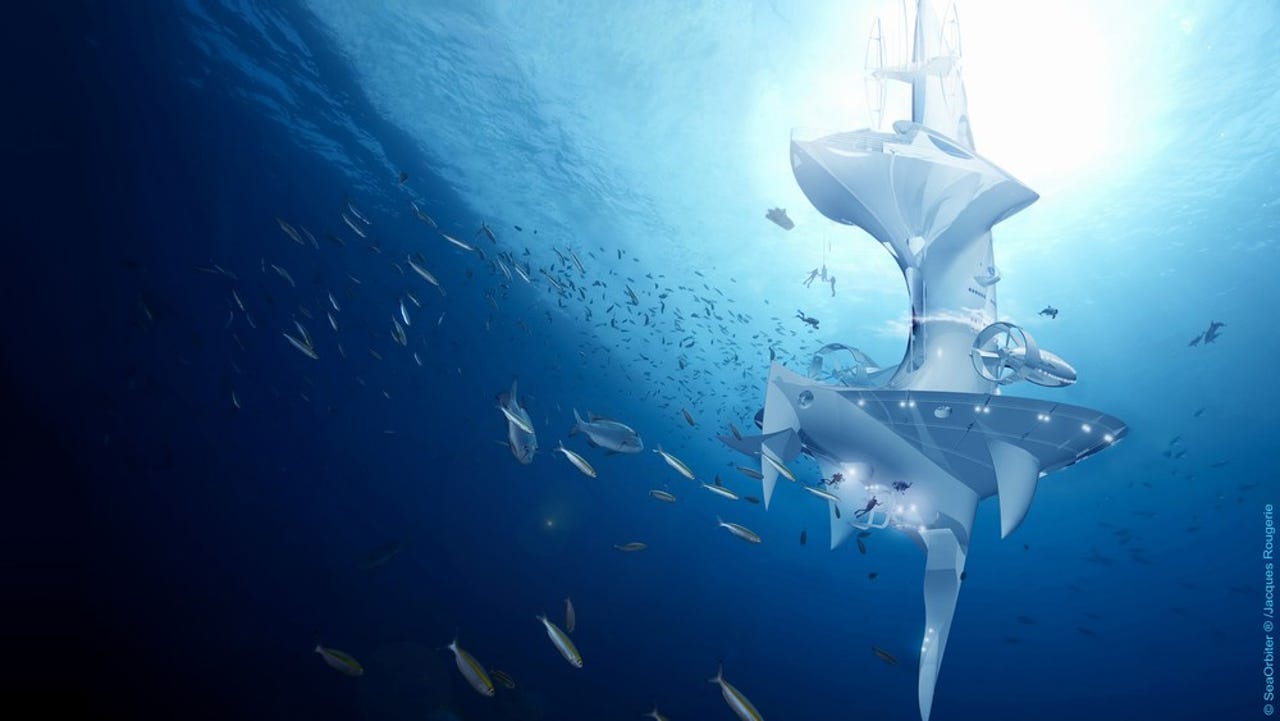Innovation
This gorgeous underwater 'space station' will explore Earth's final frontier
A French architect is looking to the crowd to help fund an underwater vessel to explore the "lungs of our planet."


But an ambitious project, touted as the "space station of the sea," hopes to expand that knowledge, with your help.
The SeaOrbiter is a decade-long project -- led by French sea architect Jacques Rougerie with support of institutions like NASA, National Geographic, and the Smithsonian Institute -- to build an underwater exploration vessel that will follow ocean currents and allows researchers, explorers and crew members to live on-board for 24 hours a day "over a long period of time."
Here's a look at how the vessel will be utilized:
But before the SeaOrbiter hits the seas, it's navigating the crowd to help fund part of the project. Using KissKissBankBank, the team is looking to raise 325,000 euros to build the "eye" of the SeaOrbiter, consisting of the lookout post and the vessel's entire communication system. With 49 days remaining, the group has already collected about 90,000 euros.
"The ocean is the heart of the solar system. It is at once the motor and the lungs of our planet. We must reinstate the ocean as the center of our daily lives," said Rougerie. "We want to make way for a new global socio-economic model which integrates the ocean in a responsible, sustainable manner, as the principal source of innovation and solutions. Medicine, nutrition, pharmacology, renewable energy—the SeaOrbiter can help us improve these for the betterment of our planet."
If everything goes according to plan, the first missions will take place in 2016 in the Mediterranean Sea.
Photos: SeaOrbiter
This post was originally published on Smartplanet.com